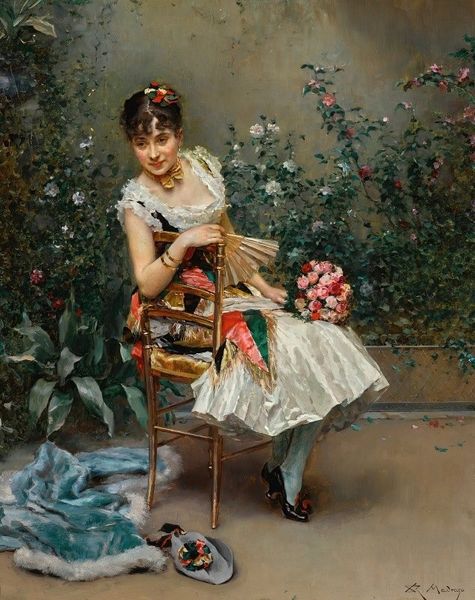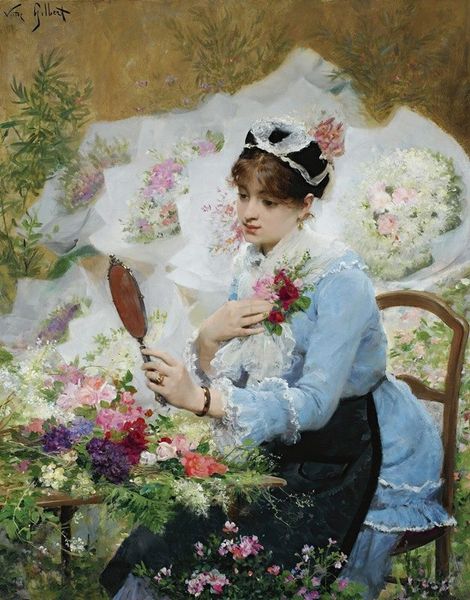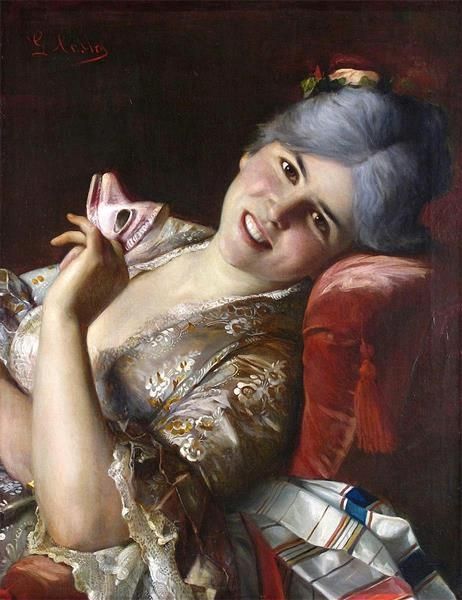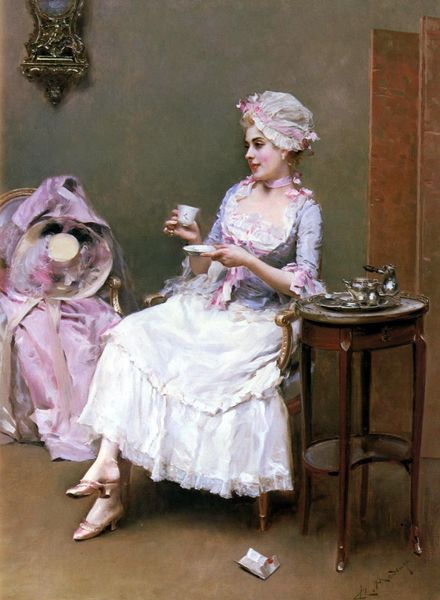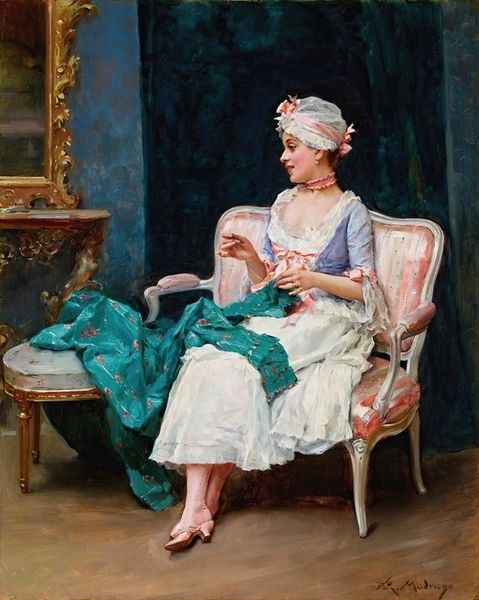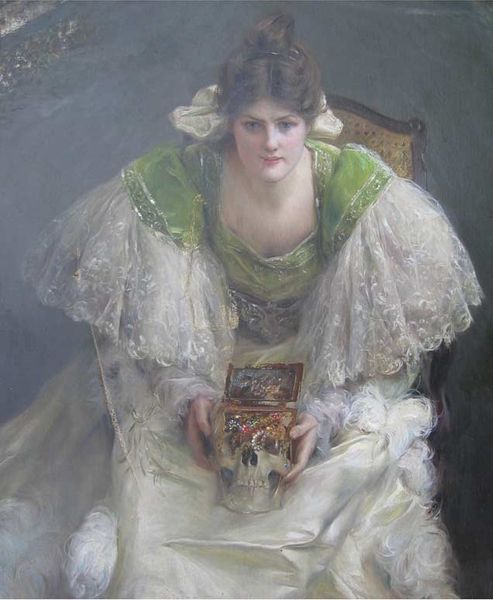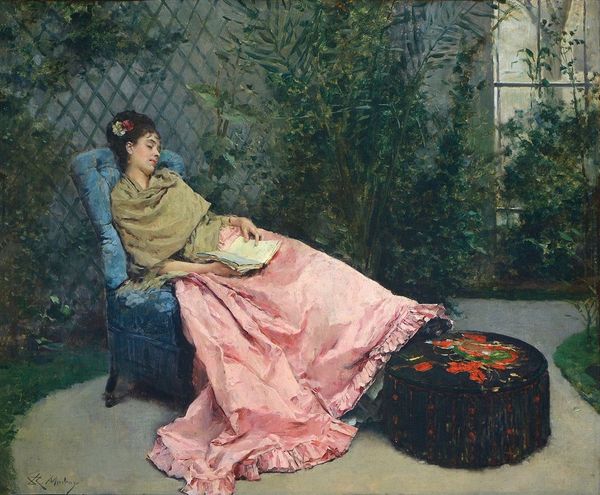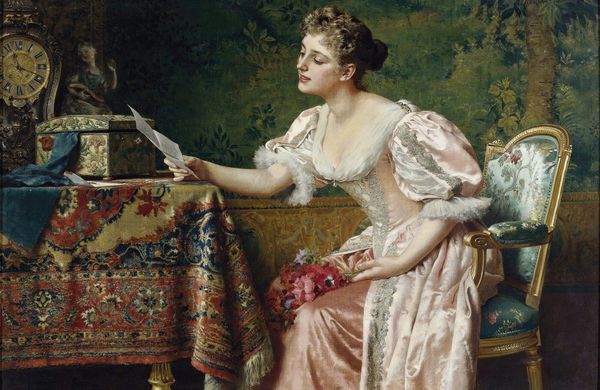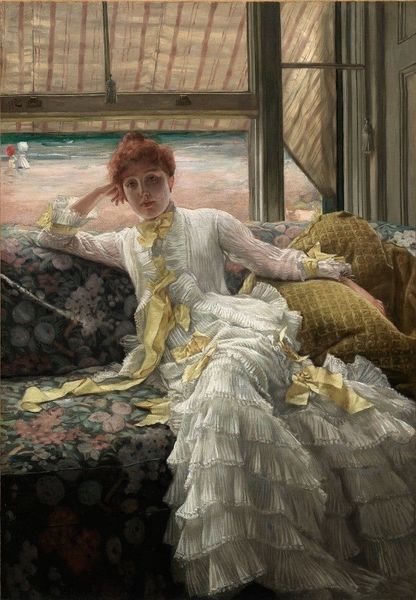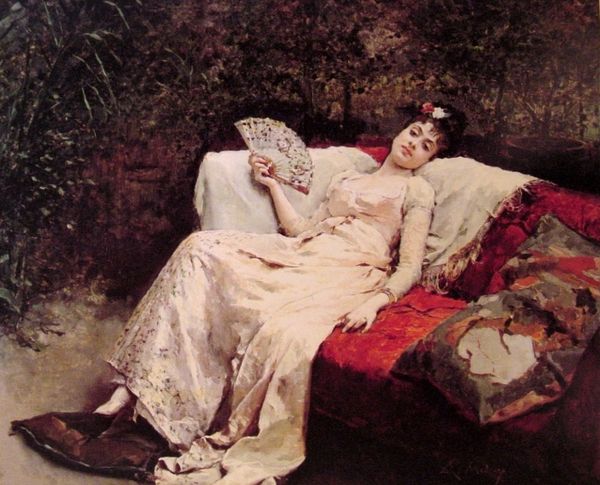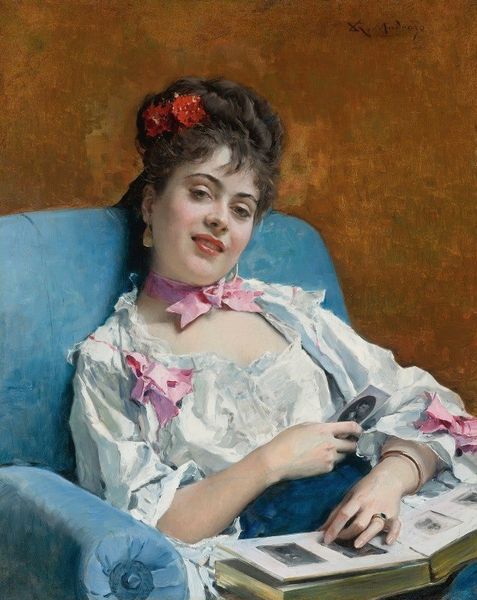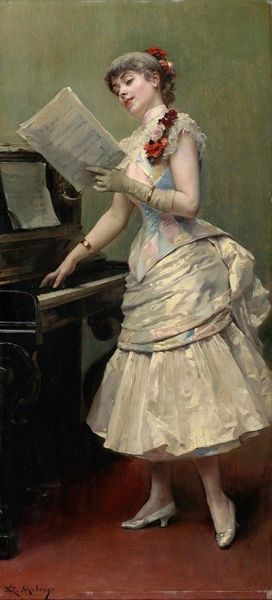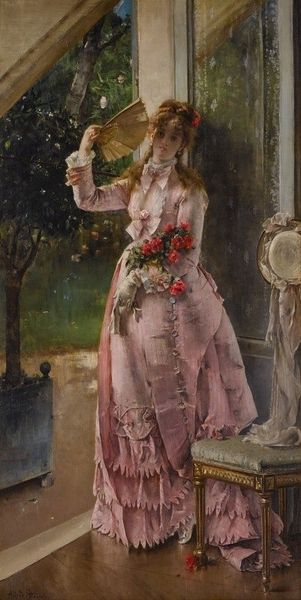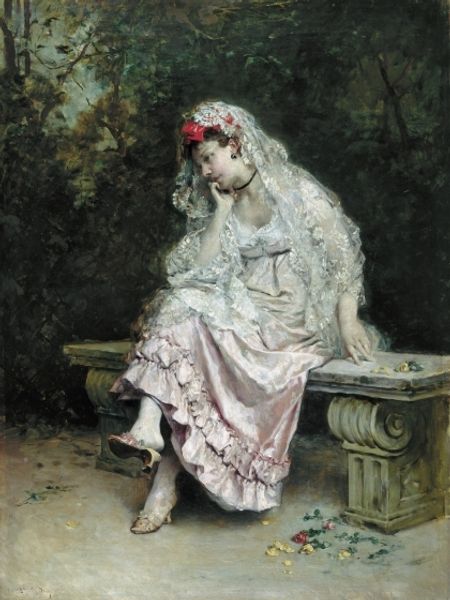
oil-paint
#
portrait
#
impressionism
#
oil-paint
#
oil painting
#
naive art
#
genre-painting
#
portrait art
Copyright: Public Domain: Artvee
Editor: So, here we have "The Rendezvous" by Raimundo de Madrazo, painted in oil. It’s very romantic and the detail in her lace veil is striking, as are the various fabrics. How would you interpret this piece? Curator: Well, the immediate question for me isn’t just "who is she?" but "how were these clothes produced, and by whom?" The textile industry in that era was fueled by incredibly exploitative labor practices. The delicate lace, the silk of her dress, the dyes... these things had real material costs, often borne by the working class. Editor: That’s a fascinating perspective! I hadn’t considered that at all. I was so focused on the image of romance. Curator: Right, but romance, like this painting, is constructed. Consider the composition – the way the light falls, drawing attention to the expensive fabrics while obscuring the surrounding landscape. It invites us to admire the wealth and status conveyed by these materials, without considering the labor involved. Editor: So you see it as a commentary on… consumption? Curator: I see it as evidence of it. The very act of creating this painting, using expensive oils and canvas, speaks to a culture of privilege. And think about who would have viewed this painting originally – likely other members of the upper class, reinforcing their own values and status through the consumption of art. Editor: It’s making me rethink the artist’s intention and how the painting itself is a material object embedded in a larger economic system. Curator: Precisely! It shifts the focus from aesthetic beauty to the concrete realities of production, labor, and ultimately, consumption. Editor: This has opened up a completely new way for me to appreciate art – beyond just what's on the surface. Curator: Exactly, we must explore art’s function within social and economic systems to better appreciate its inherent meaning.
Comments
No comments
Be the first to comment and join the conversation on the ultimate creative platform.
